What inspired you to found Reflex Protect?
I grew up on a cattle ranch my great-grandfather homesteaded on the Alberta, Canada border of Montana before it was a state. It’s one of the most remote parts of the lower-48, and I graduated from a public high school with just 48 others students. I was always a little different, I suppose, evidenced by me becoming the world-wide President of Key Club International in 1982-83, despite coming from such an out-of-the-way place.
I went on to graduate from Stanford University, majoring in Political Science with honors in the Strategic Weapons Management track (supervised by such luminaries as future Secretary of State Condaleeza Rice), after which I received a JD from Georgetown. I returned to San Francisco to work at Pettit & Martin, but after the 101 California Shooting, I changed direction completely, first joining a rock band, August West, and then starting my own entertainment law firm and becoming the Professor of Entertainment Law at the dawn of the digital age.
My entrepreneurial career began in response to my personal trauma losing colleagues and friends in the 1993 101 California Shooting in San Francisco. When my co-founder, inventor Steve Mangold, placed a prototype of what would become Reflex Protect in my hands, suggesting that he needed help in developing it as an alternative to a loaded gun in a nightstand drawer, I knew instantly I was looking at the next step of my entrepreneurial journey.
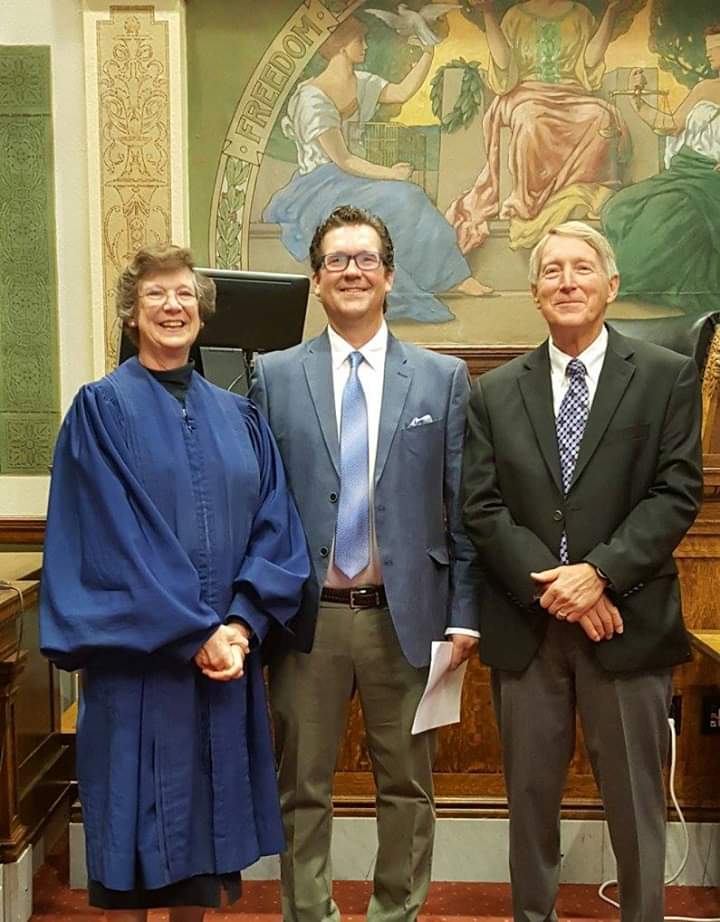 Hon. Marilynn Townsend, Joe Anderson, UM Law Dean Greg Munro, Joe swearing into the Montana Bar after 25-years in California Bar, Missoula, MT 2016
Hon. Marilynn Townsend, Joe Anderson, UM Law Dean Greg Munro, Joe swearing into the Montana Bar after 25-years in California Bar, Missoula, MT 2016
You had a long career as a lawyer—what made you transition to startups?
Actually, I’ve had a long career in both!
At the time, I left the big corporate practice and began my entrepreneurial legal career, working with my then wife, electronic music pioneer Suzanne Ciani, to build Seventh Wave Productions, which garnered multiple Grammy Award nominations in the ‘90s and remains in business to this day.” I split my time almost evenly between helping other artists and startups try to achieve their dreams and pursuing my own creative endeavors as a musician, record producer, and entrepreneur.
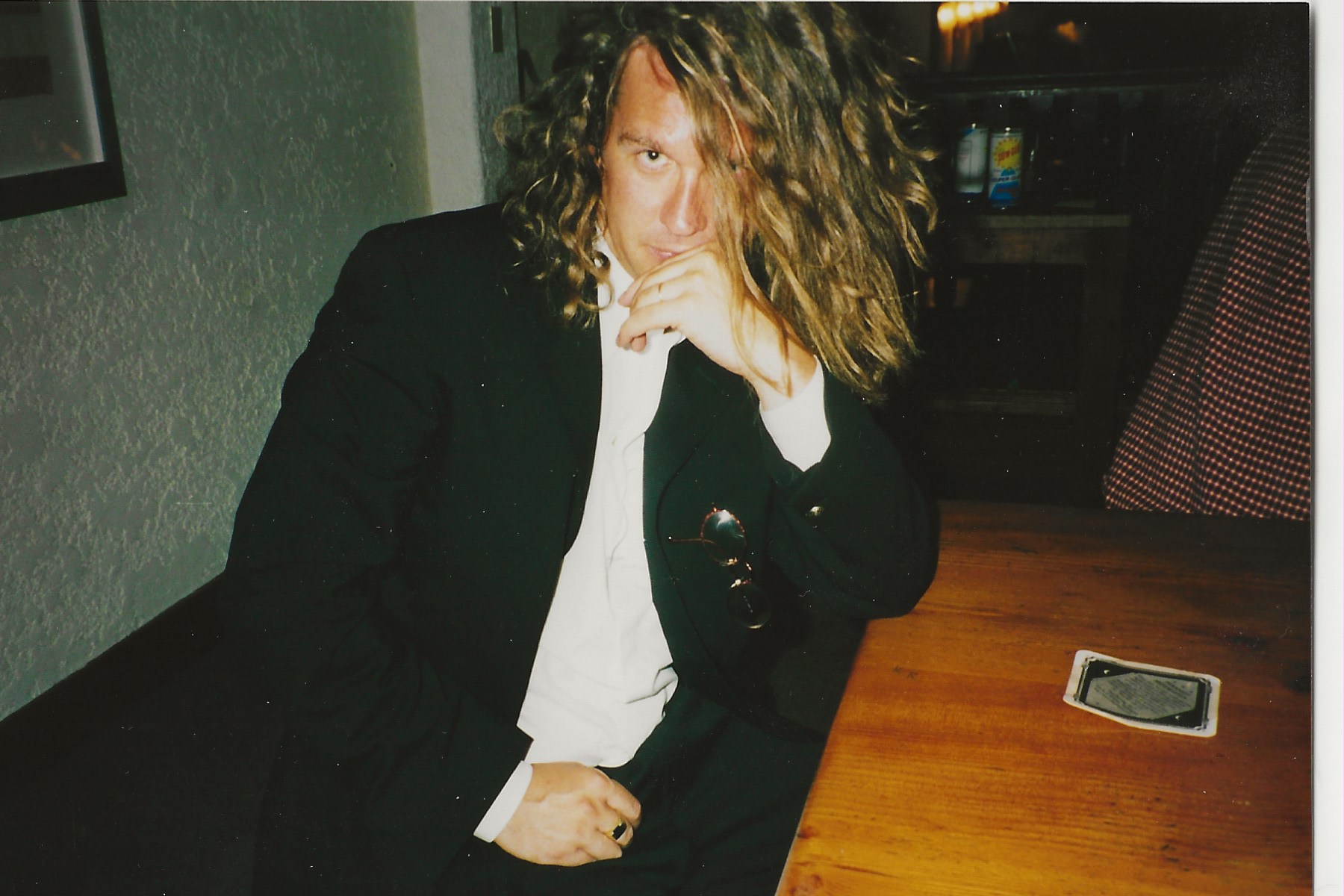 Joe Anderson at the Grammy Award's post-party 1995
Joe Anderson at the Grammy Award's post-party 1995
After a decade representing old rock bands, New Age artists, and digital media pioneers, I found myself partnered with *NSYNC's Lance Bass in a new film production venture aimed at bringing films to their fan base. In addition to being the manager partner of the company, I also served as our in-house screenwriter and penned a number of optioned (but never made) screenplays. I also expanded my legal practice by partnering with Phillip Rosen to form one of the first boutique digital media law firms, Rosen & Anderson. During this chapter, I produced the films On the Line for Miramax and Love Wrecked for The Weinstein Company, alongside representing social media startups and indie film companies such as Superdudes and Muse Productions.
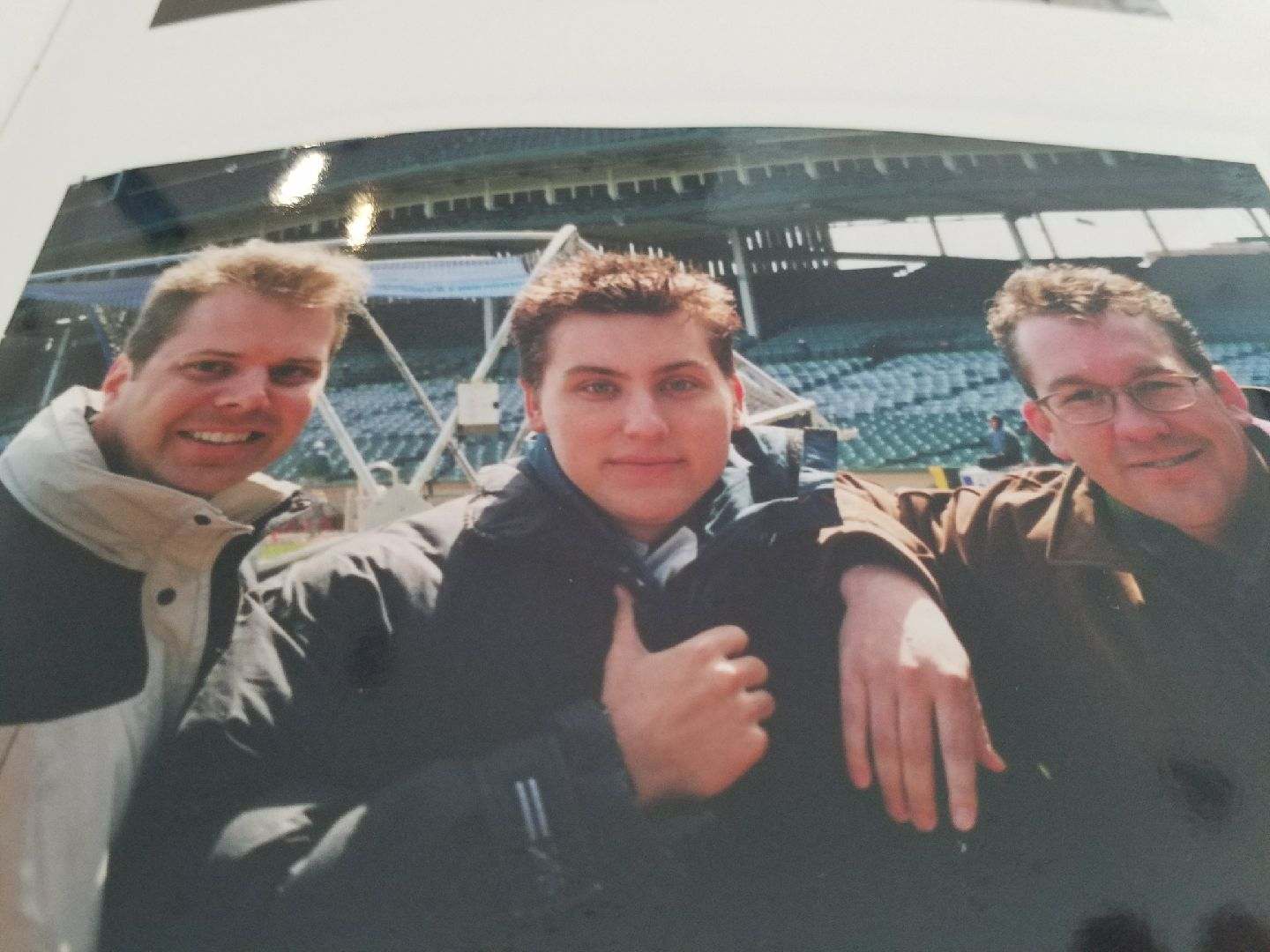 Rich Hull, Lance Bass, Joe Andersono Shooting On the Line in Chicago 2001
Rich Hull, Lance Bass, Joe Andersono Shooting On the Line in Chicago 2001
In 2007, I felt the need to do something more important on the entrepreneurial front, so I left LA to do a walkabout in Australia and New Zealand. Upon returning to the US, I was asked to join, Solar Suspension System, a startup solar power venture in Carbondale, Colorado, where I began writing a novel that would eventually become Face the Music. I then went on to help veteran ed tech entrepreneur Robert Romano found StudySync, the award-winning digital classroom tool. I served as General Counsel and Director of Original Content, so on a given day I might both draft a complex securities financing agreement and script an episode of a study group discussing strategies for tackling their next English assignment on Macbeth!
It seems almost everything I have done in my now 30-year career as a lawyer and entrepreneur prepared me to build and lead Reflex Protect.
What’s been the biggest challenge while launching this company?
Convincing investors and potential customers that a Montana startup truly has developed the next big thing in safety preparedness. I think many investors had a hard time believing that something that didn’t come out of Santa Clara County would be the solution to the “arm the teachers” debate, a “hospital safe” workplace violence tool, and an accepted bipartisan approach to violence prevention.
That said, I don’t think this company could have been born and raised anywhere else. The invention of Reflex™ technology was an attempt to create a better bear spray, and also because of the “Guns vs. No Guns” debate, especially in schools, here in Montana.
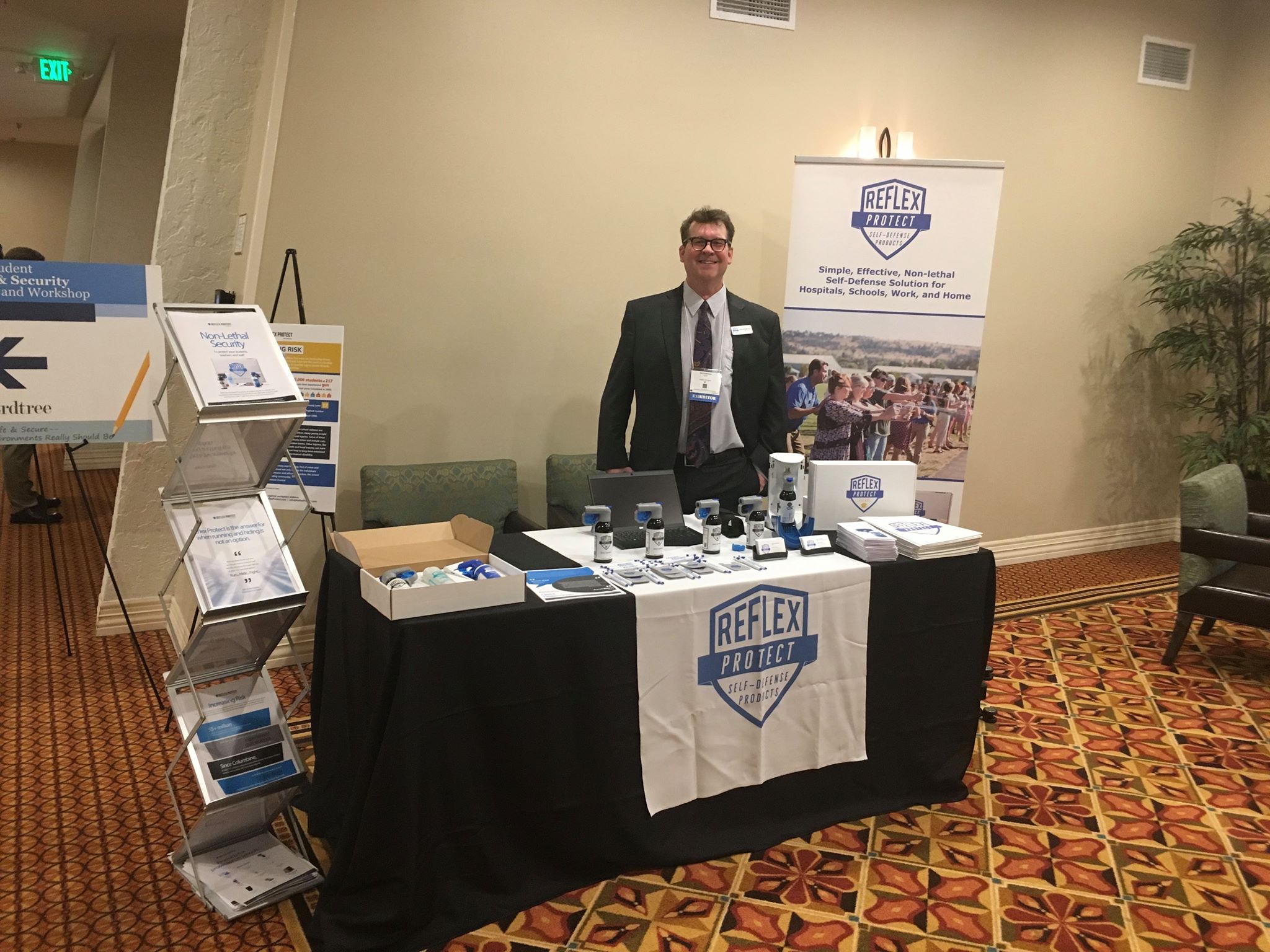 Joe at School Safety Conference, Seattle, WA 2019
Joe at School Safety Conference, Seattle, WA 2019
The biggest lesson learned?
For Reflex Protect so far? That seemingly bitterly divided people often have far more in common than they might realize, especially when it comes to fundamentals, such as keeping our kids and first responders safe. When discussions are re-framed to avoid unnecessarily politically charged language, they hear and acknowledge those commonalities. I find this enormously inspiring and hopeful.
Overall in my entrepreneurial journey, however, I would say the biggest lesson I have learned is to stay in the moment. I used to see a goal in the future and plot a path back to where I was, and then follow that path with certain shucks and jives here and there, but with the main goal still in mind. I now believe that each day creates a series of choices and options, each representing a potential right next indicated step. That is the step to take.
The goal may change, even the mission may change, but reacting to the reality of the moment rather than a dreamed-of vision for an unknowable future is both more enjoyable and more likely actually to achieve success.
What’s the #1 skill you think entrepreneurs need to succeed?
Persistence. You just can’t give up ever. I find that taking life one day at a time actually makes it far easier to be persistent if you only need to take the right next indicated step, rather than seeing how far it may seem you still have to go to reach and arbitrary future goal established in the past.
What’s your team culture like?
Unprecedented, in my extensive experience in startups. Everyone involved in Reflex Protect is involved because of its mission; they are motivated by making people safer. Yes, of course everyone hopes we become wildly successful and make money for our investors and ourselves. That will merely prove that we have accomplished the mission, and it is that mission that attracted everyone to this company. Hence, there is an extraordinary sense of esprit de corps and individual humility in service of the greater good. I am amazed and grateful for it every day.
What is your superpower?
I’m “ambicognitive,” a word I invented to describe using the right (creative) and left (logical) brain hemispheres simultaneously. Among other things, this allows me to listen to and digest considerable amounts of information from various points of view and restate or summarize it in a new fashion designed to be understandable (and potentially even agreeable or at least actionable) to all. Often I find this power most useful simply in helping creative people and logistical or financial types get on the same page and understand they aren’t actually working at cross purposes.
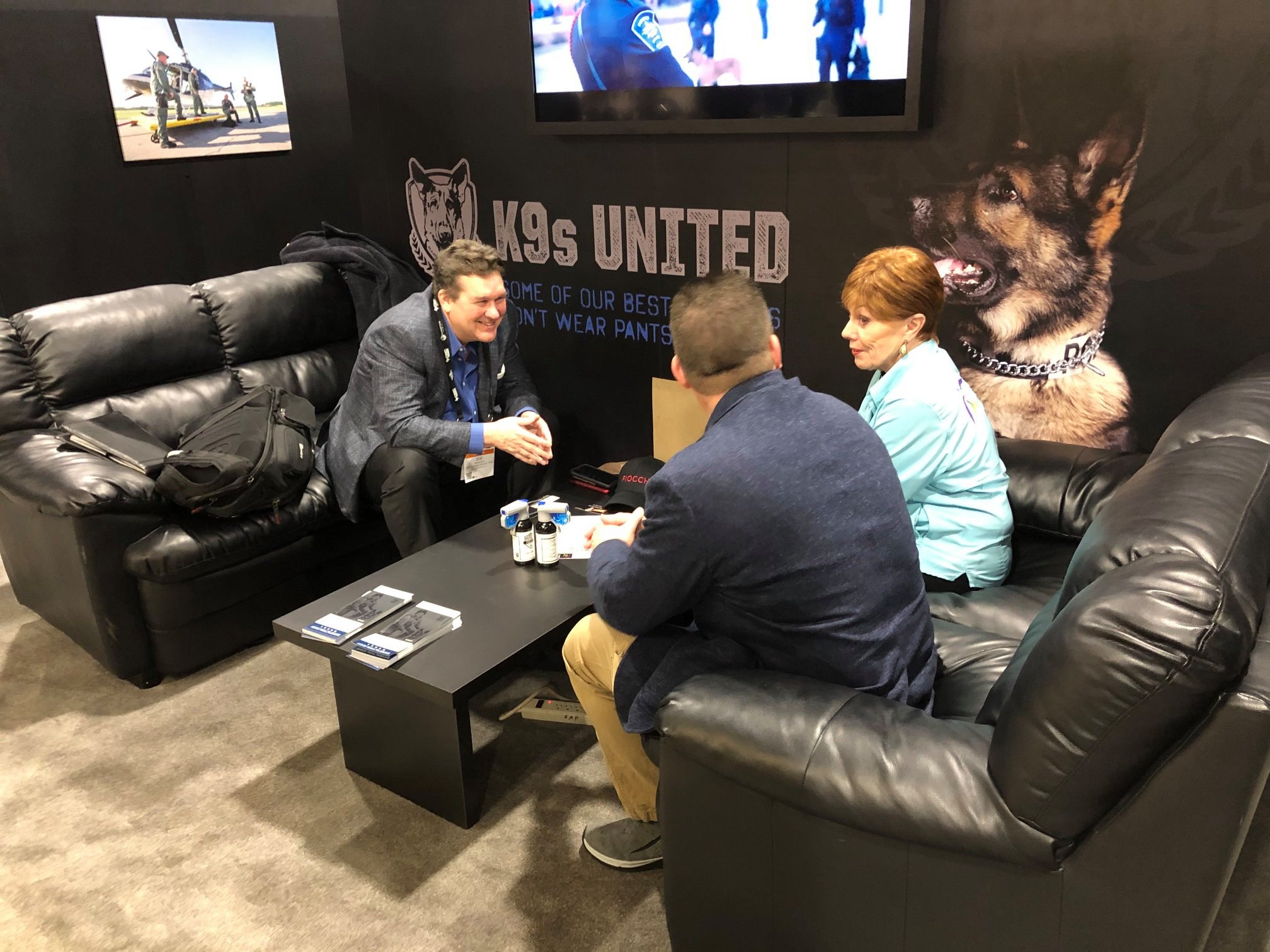 Joe at Safariland booth, SHOT Show, Las Vegas, NV, 2020
Joe at Safariland booth, SHOT Show, Las Vegas, NV, 2020
What’s your kryptonite?
Ego. Making things about me that aren’t. I’m working on it. My study of Stoicism has helped me stay in the moment and remain right-sized in terms of my ability (or lack thereof, more importantly) to control people or outcomes.
Do you have any unusual routines or habits?
I’m not sure there’s anything particularly unusual about me. I’m allergic to avocados, which is a real annoyance (especially when I was living in California). I actually visualize “unyoking” in my mind (complete with sound effects of bridal hitting the barn floor) each night before I go to sleep. During COVID-19, I've had to implement a “pants before noon” rule, but that may be too much information…
Do you have any other hobbies/things you like to do?
I’m a voracious reader of fiction and non-fiction alike and usually have at least two or more books going at a given time. I love movies and music, and I still play the piano, though not nearly as much as I would like and once did.
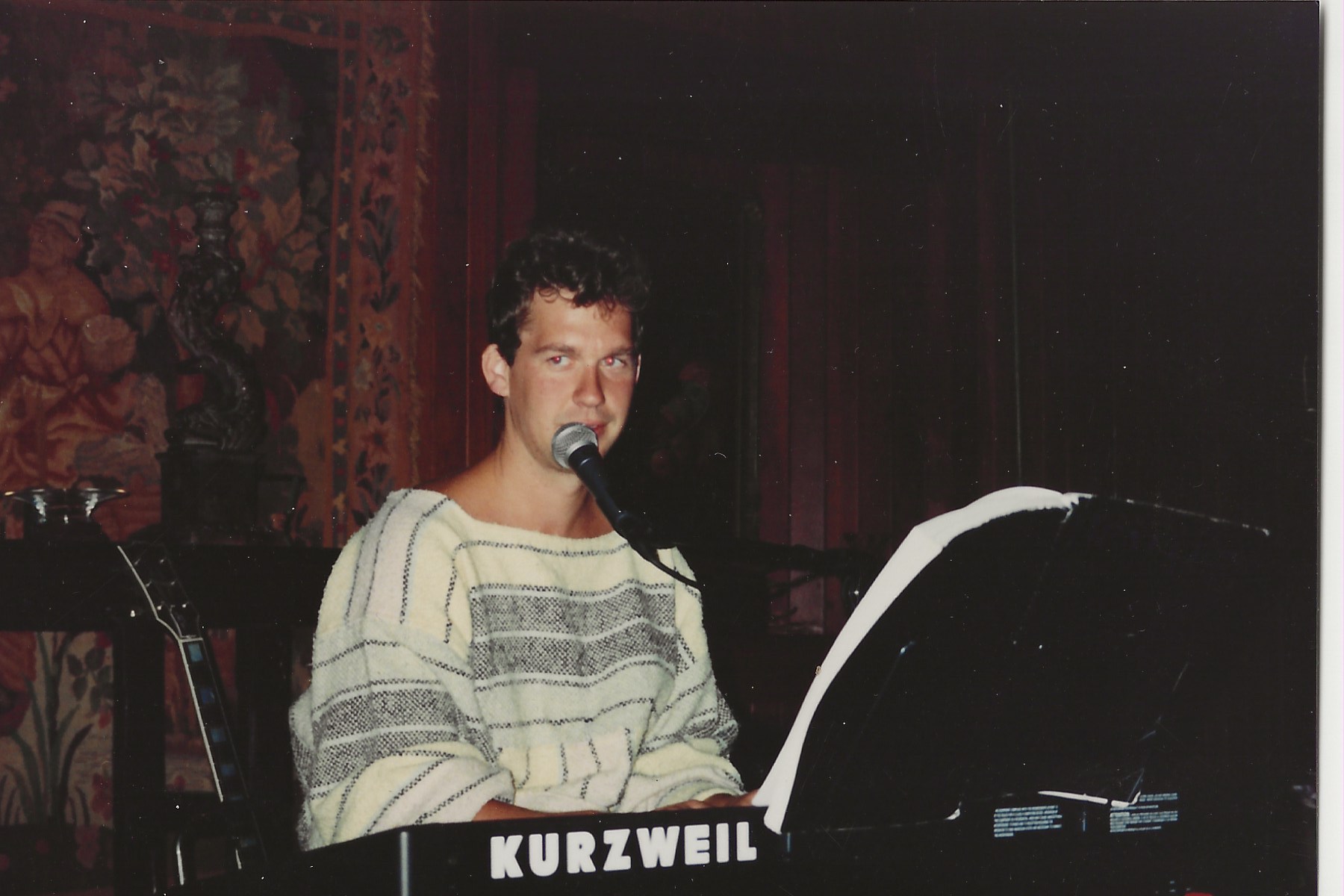 Joe at Ocean Avenue Studios recording session, 1994
Joe at Ocean Avenue Studios recording session, 1994
I geek out about film and music production and trivia specifically, but in general I get geeky about the quiet efforts of behind the scenes experts in their fields, whether creative or business. It’s easy to be impressed by what you see and hear, but when you know enough about a collaborative medium, it’s the work you don’t necessarily notice that I really appreciate.
Do you have any mentors? If so, please share and describe how they’ve helped you.
I have had numerous mentors over the years. The Dean of San Francisco entertainment attorneys, Bob Gordon, introduced me to clients such as Santana, Jefferson Airplane, and Quicksilver Messenger Service, which helped jump start my career. My former law partner Phillip Rosen, who helped me understand Hollywood. Robert Romano, the StudySync Founder and CEO, whose example helped me develop my own leadership style for Reflex Protect. That said, my mother’s example of leading with gratitude and kindness is the best guidance I have been fortunate to receive in my life. I endeavor to inculcate her example more fully all the time.
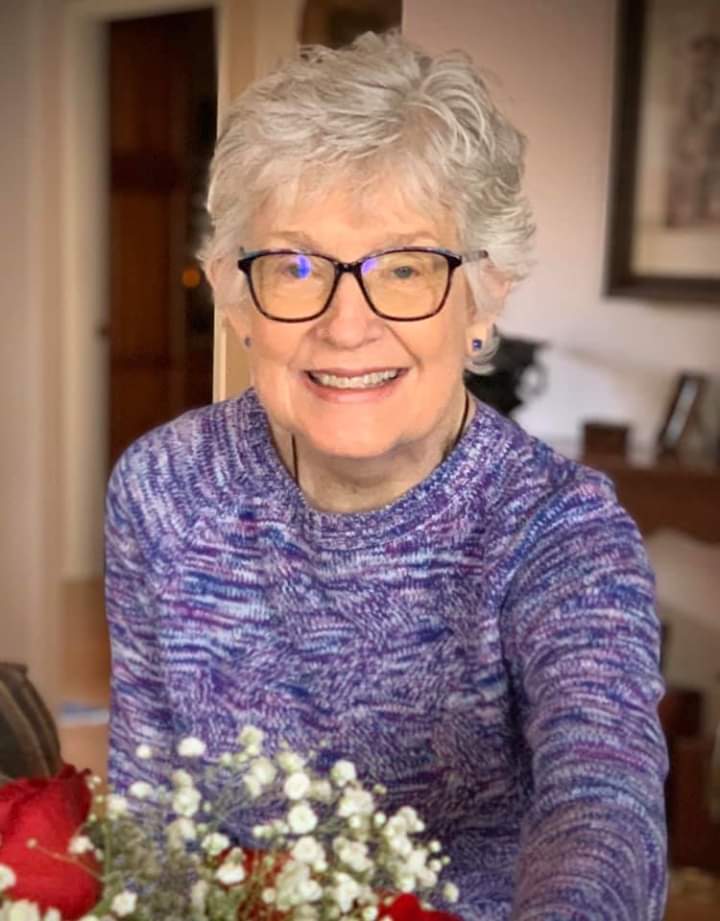 Cherie Anderson, Joe's mom
Cherie Anderson, Joe's mom
If you could give yourself one piece of advice 5 years ago, what would it be?
“I know you think you know this intellectually, Joe, but understand to your very core that, despite the way it looks from your point of view, the Sun does not orbit the Earth, and the Universe does not revolve around you. Meditate on it, son….”


 Oops! We couldn’t find any results...
Oops! We couldn’t find any results...





